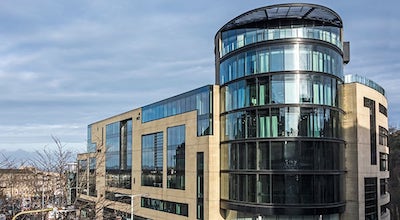The managers of the £380 million Baillie Gifford European Growth Trust plc admitted their investment style “is very much out of favour” and they have “undoubtedly made mistakes.”
The comments came as the investment trust reported that its net asset value per share (NAV) total return was 8.3% in the year to September 30, 2023, compared to a total return of 20.5% for the FTSE Europe ex UK Index, its comparative index.
The fund’s managers Stephen Paice and Chris Davies wrote: “Our investment style is very much out of favour, and we have undoubtedly made mistakes, but we have the right people and corporate culture at Baillie Gifford to persevere through this difficult time.
“There are plenty of geopolitical tensions and economic headwinds to worry about, but we must not let such factors overshadow the adaptability, innovation, and capital allocation of the companies we invest in.
“We are riding on the coat-tails of founders, families and management teams who are doing all the hard work.
“That this work is being so discounted by the market gives us confidence in a brighter outlook for returns from here.”
The fund’s 10 biggest investments at September 30 were Northvolt of Sweden, Prosus of Netherlands, Ryanair of Ireland, Topicus.com of Netherlands, Schibsted of Norway, Atlas Copco of Sweden, DSV of Denmark, ASML of Netherlands, Allegro.eu of Poland and Kingspan of Ireland.
The closed-end fund said positive contributors to the trust in the period included Ryanair and online classified companies Adevinta and its major shareholder Schibsted “which showed that they can offset temporarily weaker volumes with price increases.”
The fund said negative contributors in the period included battery startup Northvolt “which was written down to reflect moves in public benchmarks, though operational progress remains good” and payments processing company Adyen “which fell after announcing some market share losses in the US.”
The fund’s portfolio now contains five unlisted companies accounting for 10.9% of total assets.
A special interim dividend of 2.20p was paid on September 15, 2023. A final dividend of 0.40p per share is being recommended (2022: 0.70p).
Over the year a total of 538,471 shares were bought back into treasury.
The fund is managed by Baillie Gifford & Co, the Edinburgh based fund management group with around £217 billion under management and advice as at November 15, 2023.
Baillie Gifford European Growth Trust chairman Michael MacPhee wrote: “Since Baillie Gifford began managing the portfolio in November 2019, the NAV total return has been 9.3% compared to a total return of 25.1% for the FTSE Europe ex UK Index, in sterling terms.
“The share price total return has been 2.6%, with the discount widening from 7.5% to 13.6%.
“After an initially strong run of performance, the company has suffered two years of poor investment results.
“This has damaged the longer run outcome for now. The board is painfully aware of the volatility and disappointment this has entailed for shareholders but is confident that Baillie Gifford’s currently out-of-favour growth style will be vindicated in the longer term.
“The reason equity investment yields the best long run returns is that it involves volatility and requires patience and, on occasion, a degree of endurance.
“The board therefore considers it premature to make a proper assessment of long-term performance.”
Managers Paice and Davies added: “We took over management of the company four years ago with the aim of investing in Europe’s most dynamic growth companies.
“Since then, the share price has experienced a spectacular rise and equally spectacular fall. Adjusted for the share split, we started at just over 80p, peaked at around 170p, and ended the current period almost where we started.
“While we continually ask ourselves what we could have done differently, Baillie Gifford has been managing European portfolios since 1985 and has experienced poor performance before.
“Many of our most successful companies have been through similarly difficult bouts. Just as those companies did, we emerged from each one in a stronger position. We do not wish to downplay the recent period of poor performance. We think about it every day.
“Disappointing as this is, however, it is more important to consider where the share price will be five years from now.”
